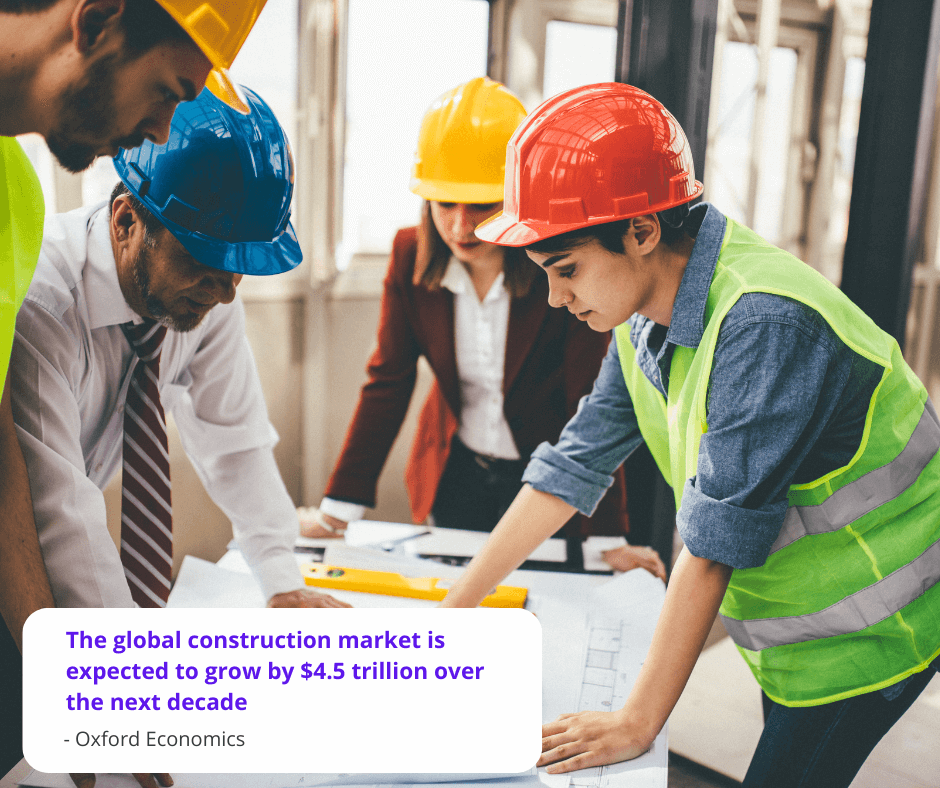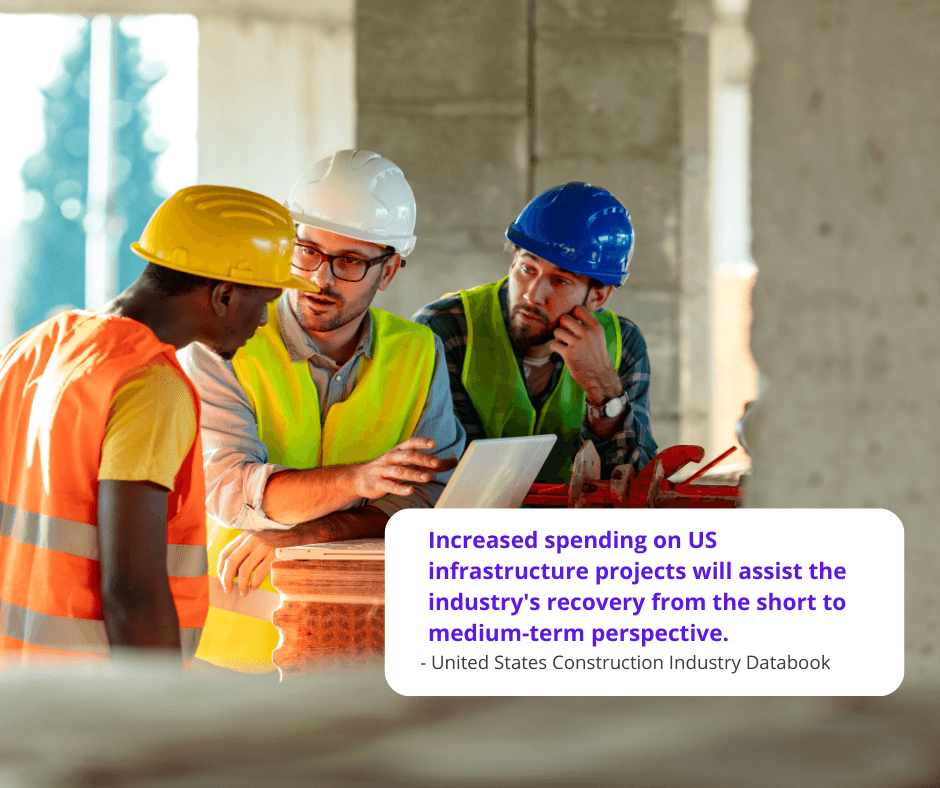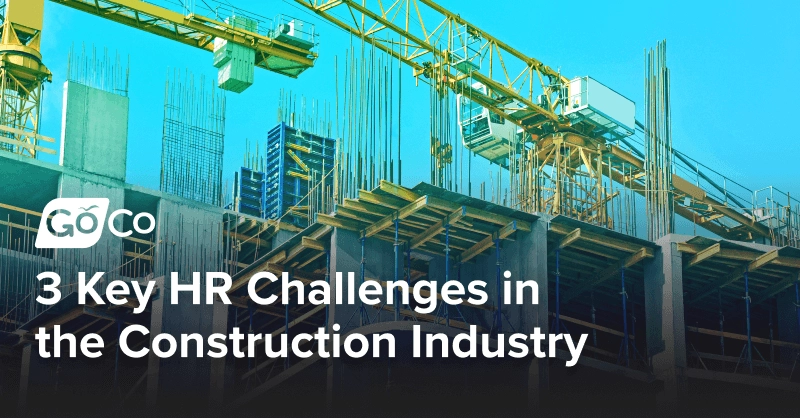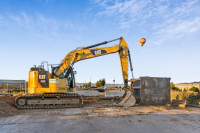3 Key HR Challenges in the Construction Industry
HR teams and those in leadership positions in the construction industry must be proactive about strategically addressing today's challenges.
by Nick Schurk - April 8th, 2024
Construction is a giant in the global economy, employing millions worldwide and contributing significantly to economic growth. However, like most industries, the construction sector has faced numerous challenges in recent years. It's believed that 70% of construction companies were hurt by the COVID-19 pandemic and supply chain issues.
In this blog post, we'll discuss three key obstacles facing HR departments In the construction industry. With available talent becoming increasingly scarce, HR teams and those in leadership positions must be proactive about strategically addressing these challenges.
3 Major Challenges for HR Pros in the Construction Industry
1. Adopting New Technologies
One of the critical challenges facing the construction industry is the need to innovate and adopt new technologies. While construction is a traditional industry that has been slow to change in the past, there is now a growing recognition that innovation is essential for the sector to remain competitive and sustainable.
In particular, the use of Building Information Modelling (BIM) and other digital technologies has the potential to transform the way construction projects are planned and executed, improving efficiency, reducing costs, and enhancing safety.
However, adopting new technologies can be challenging, particularly for smaller companies that may not have the resources or expertise to invest in new systems. There is also a need for training existing workers to ensure they can use new technologies effectively. This can be a significant challenge for HR teams, particularly in an industry where skilled workers are in high demand.
2. Developing Sustainable Practices
Another major challenge facing the construction industry is promoting sustainability and reducing environmental impact. This is an increasingly important issue for customers and stakeholders, who demand that buildings and infrastructure projects be designed and constructed in an environmentally responsible and sustainable way.
This concern means adopting sustainable building practices and using materials and technologies that are environmentally friendly. It also means ensuring that projects are designed to be energy-efficient and that waste is minimized throughout the construction process, reflected in the increasing popularity of modular construction.
For HR teams in the construction industry, this means finding workers who are knowledgeable about sustainable building practices and committed to reducing their work's environmental impact. It also means investing in training and development programs that promote sustainability and help workers acquire the skills they need to work in a more environmentally responsible way.

3. Recruiting Skilled Workers
Another challenge facing the construction industry is attracting and retaining skilled workers, with 85% of construction firms reporting difficulty filling open positions. The industry has long struggled with a shortage of skilled workers, and this is a particular issue in the UK and the US, where there is a significant skills gap.
This is partly due to the aging workforce in the construction industry, which means that many experienced workers are retiring, and there are not enough younger workers coming through to replace them.
In 2023, 85% of construction firms reported difficulty filling open positions
-Associated General Contractors of America & Autodesk
For HR teams in construction, this means investing in training and development programs, offering apprenticeships and other opportunities for younger workers to gain experience, and promoting the benefits of a career in construction to a broader audience.
The Lingering Effects of COVID-19
COVID-19 had a significant impact on the industry, as countless projects were delayed due to the pandemic. Additionally, rising interest rates and decreasing demand for commercial real estate due to the post-pandemic shift to remote work have cooled the demand for new construction projects.
Many companies faced (and continue to face) financial difficulties, struggling to keep their workforce employed and their business profitable. All the while, issues with the global supply chain caused a price increase for materials, a pain point the industry and consumers still feel today.
For HR teams in the construction industry, this means finding ways to support and upskill their workers. These initiatives have included new health and safety protocols, allowing flexible working arrangements, and finding ways to keep workers engaged and motivated.

Final Thoughts
The construction industry faces significant challenges in the years ahead, from the need to innovate and adopt new technologies to promoting sustainability and attracting skilled workers.
Thankfully, the industry has the power to boost recovery and create many high-quality jobs. With the right strategies and investments, HR teams can play a crucial role in helping their employers and employees overcome these challenges and thrive in a rapidly changing global economy.
Updated 4/8/2024
Recommended Posts
HR's Guide to OSHA Compliance and Regulations
Blog Articles
Search...
Product
GoCo
Resources
Articles
eBooks
Webinars
Customer Stories






